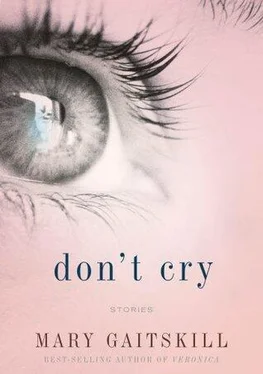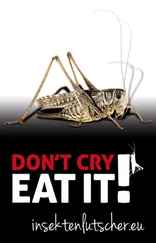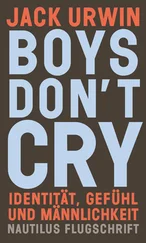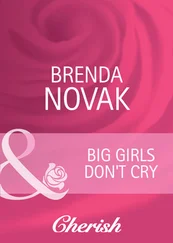“I'm sorry about that,” she said. “I just ran into him. He's lonely and he talks too much when he's drunk.”
She was twenty-five. I was thirty-three. She was already editor in chief of a venerable avant-garde press, a veritable circus of caged monsters and their stylish keepers. She spoke with a combination of real confidence and its flimsy counterfeit. Monsterless, I barely knew how to speak at all, and what I could say was timid and unctuous. It didn't matter. She wore a heavy silver necklace over her white T-shirt, under which her small breasts gave off dark, glandular warmth. Behind the bar, a mountain of green, blue, and gold bottles glimmered before a murky mirror lake. On the television above the bar, a rock star in an elaborate video drew a door in the air with a piece of chalk, smiled, and stepped through it. Jukebox music rose up, making a forest of sound, through which young girls traveled on their way to the bathroom. Above us, the fog traveled, too, laughing and quick. The bathroom door creaked loud and long; slim thighs went past, along with a swinging little wrist loaded with shining jewelry. We were hungry for this, all of this, and for each of us, “this” took form in the other. We ate each other with our eyes and, completely apart from our inconsequential words, our voices said, How delicious. We impulsively kissed, and separated quickly, laughing like people who had accidentally brushed against each other on the sidewalk. Then with a nervous toss of her head, she glided in close again. Soft heat came off her face, and then there was the dark, sucking heat of her mouth. She said, “I'd take you to dinner, but my girlfriend is expecting me.”
She drove me to the bus stop in front of a doughnut place and stood waiting with me. She lived with her girlfriend, she said, but they had an understanding. Gum wrappers and plastic bags stirred in the cold, light-echoing wake of night traffic. Behind the glass of the doughnut place, a dark woman with rhythmic arms labored over golden dough. On the street, a hunched man with a sour face strutted back and forth, displaying the masking-tape words on the back of his jacket — cops are tops — i'm a bottom — plus an arrow pointing at his butt. Really, I said, an understanding? Yes, said Dani, though it had been difficult to maintain. How had they arrived at it? I asked. How had they talked about it? They had not talked about it, she said. She thought it was more powerful for not being talked about. Bottom scowled as we kissed again. Golden doughnuts continued to fry. The bus arrived; I crossed its black rubber threshold, sat in the back, and almost immediately went to sleep.
Asleep on the bus, I dreamed that while watching a magic show I was plucked, blank and tingling, from the audience and led by a white-gloved assistant up onto the stage, where I was suddenly drenched with color and identity: I was the girl to be sawed in half. My heart pounded. I woke on the winding avenue thickly built with hotels, their signs now rapt and glowing in the velvet dark.
Naturally, it was nonsense about the understanding. That was just a door Dani had drawn in the air with her finger. But when we tried it, it opened, and so in we went.
We met almost every week for five months. Our time alone was as light and pleasantly shocking as her casual touch to my sternum, but with its meaning now thoroughly unfolded. We attended film screenings, dinner parties, the dull receptions that follow literary panels — and somehow we would always find an unused room, an inviting stair, a hallway that would magically rearrange its molecules to become a sweet little seraglio and modestly revert as soon as we left it, smoothing our clothes and hair. We would have dinner somewhere, and then she would drive me back home to Marin. We drove without talking, the tape deck playing and the landscape making dark curved shapes all about us, shapes that would part to reveal the stars, then the ocean, then clusters of fleeing light. I remember a tape she played a lot, a song that went “Let your love come through / Love come through to you.” It was a lush and longing song, and after it, the silence between songs seemed dense and deep. It was during this silence that Dani asked, “What are you thinking?” And so we began to talk.
We talked much like we made love — false and sincere, bold and fearful, vulnerable and shielded. I knew that her mother had had several face-lifts, a tummy tuck, and liposuction. I knew that after an especially grueling set of operations, she had declared triumphantly to her daughter, “You have inherited an excellent set of healing genes!” She knew that my father had screamed to my mother, “I'm done with you, you phony! I'm going to find me a black lady with big flat feet and a hole up her butt!” I knew that one Thanksgiving her mother had burst into tears, run into the kitchen, and stuffed the turkey into the garbage, shouting, “And I wish I could do this to every one of you!” When Dani tried to comfort her, she turned away, shouting, “No! No!” Dani told this story not with self-pity but with laughter and love in her voice. When I showed her a picture of my parents taken at an ancient local studio known for its funereal tinting and suffocating airbrush technique, she said, entirely without irony, “They look great! They look so real!”
“She means we look like hell,” said my father when I told him what my “friend” had said.
“She meant you don't look like you've had a face-lift,” I replied.
“I would if I could afford it.”
I repeated that to Dani, with laughter and love in my voice. We love our parents, our stories said to each other. We are people who can love. At thirty-three, I used my parents to explain me — to make me something more real than the outline of a woman drawn in the polluted air of a bar by the most casual of fingers. The thought makes me sad and a little ashamed, and yet our confidences were not entirely false. Standing on the street fifteen years later, we still felt the silken warmth of our stories breathing between us, a live tissue of affectionate trust that appears to give us shelter each time we meet.
The light changed, but instead of crossing the street toward my destination, I went the other way with Dani, as if she had led me, even though she hadn't. I asked about her latest girlfriend, a poet as fashionable as Dani's orange hip-hugging jeans. “Yasmin is in L.A. for the month,” she said, and paused while we recognized an actress striding toward us on starved stick legs, a little black poodle with a beautiful red tongue peering haplessly from the tensile cave of her bosom. “She's teaching a poetry workshop,” added Dani. “And how is David?”
A grainy smell of gas rose off a torpid snake of traffic and snakily wound through the scent of damp bark and leaves. A taxi driver with his arm out the window beat out a song on his section of snake. Already it had formed, our invisible shelter, its walls hung with living pictures.
“So,” said Dani lightly, “are we going somewhere?”
And of course we are: down the hall and to the right, past the picture of Dani in her office, talking on the telephone to her father; he is in San Francisco and wants to see Tosca with her. Dani is wearing black-and-white-checked stretch pants and bright red lipstick, and her glossy hair is flush against her wide cheekbones. “Okay, Daddy,” she says, and her voice is softer and more seductive than it ever was with me.
We walk down the street in San Francisco, holding hands; a creamy-skinned young girl with a rosy smile rides up on a lavender bike and says, “Dani!” She and Dani talk, the girl's long bare leg bracing tense and beautiful against the curb. Dani promises to call soon; the girl rides away in a wake of lavender and rosy eagerness. I ask, “Who's that?” and Dani smiles. “Oh,” she replies, drawing it out, “just some girl.”
Читать дальше












